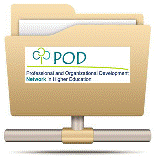Professional and Organizational Development Network in Higher Education

Professional and Organizational Development Network in Higher Education: Archives
Date of this Version
1995
Document Type
Article
Citation
Essays on Teaching Excellence" Toward the Best in the Academy (1994-1995) 6(5)
A publication of the Professional and Organizational Development Network in Higher Education
Abstract
As teachers, we wish to do more than present to our students the established ideas and facts of our fields. We want to give them a sense of how one thinks and creates within the discipline, to impart the tools of scholarship. In my field, mathematics, this concern has led to an increased focus on the teaching and learning of problem solving. Researchers have directed much attention to the executive functions and metacognition involved in problem solving, that is, the solver's awareness of thinking processes and of progress toward a solution (Schoenfeld, 1985). In addition to these procedural matters, attitudes and emotions surrounding mathematical problem solving also have been addressed in the active field of mathematics education research (Silver, 1985). In fact, the concern with thinking patterns and scholarship extends well beyond the technical sphere. Can we incorporate the teaching of these thinking skills into our regular classes? A large body of research indicates that we can, with a few simple techniques.
Included in
Curriculum and Instruction Commons, Educational Assessment, Evaluation, and Research Commons, Higher Education and Teaching Commons, Scholarship of Teaching and Learning Commons


Comments
Copyright 1995, Harriet C. Edwards. Used by permission